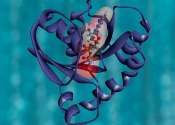Study unveils molecular pathways followed by metastatic cancer cells
Metastasis, the process by which cancer cells leave the primary tumor and spread to other tissues to seed new cancerous growth, causes most cancer deaths. There is a clear need to better understand the processes that enable ...
Feb 1, 2023
0
79









